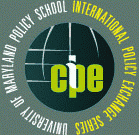Cash Transfers and Guaranteed Minimum Income Programs:
Research, Evaluation, and Policy
Prague, Czech Republic
September 9-10, 2024

-
“The Baby’s First Years Study: Filling a Scientific Gap”
Lisa Gennetian, Duke University
How does unconditional income for families in poverty affect parental investments for their young children? The Baby's First Years study is the first, longitudinal, study in the U.S. to assess the causal impact of poverty reduction, via a monthly unconditional cash transfer, on economic well-being, family life, and the early development of children. Mothers in four U.S. metropolitan areas were randomized to receive a monthly unconditional cash transfer of either $333/month (high) or $20/month (low) for the first several years after child birth. During the first three years, high-cash gift households spent more money on child-specific goods and more time on child-specific early learning activities than the low-cash gift group. Few changes were evident in other core household expenditures. Compared with low-cash gift families, high-cash gift families reported lower rates of public benefit receipt and fewer were residing in poverty, although mean income and wealth remain low for the majority of families by year 3. No statistically significant differences were evident in mothers’ participation in paid work, children’s time in child care, or mothers’ subjective well-being. Findings through the fourth wave of follow-up on parental investments and children's development will be available by summer 2024.

